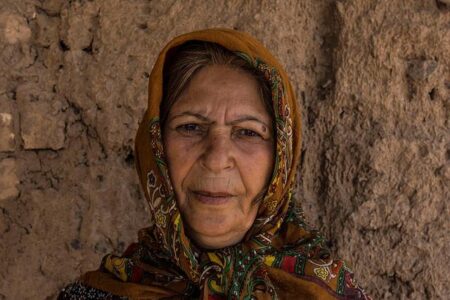In the rigid, authoritarian landscape of Francoist Spain, individual freedoms were brutally curtailed, especially for those who dared to defy societal norms. One such story is that of a young woman, just 17 years old, whose free-spirited nature led to her incarceration and a tragic coma. The BBC’s poignant report revisits this harrowing personal history, shedding light on the oppressive mechanisms of the regime and the enduring impact on families caught in its grip. This article explores the chilling realities behind the headlines, revealing the human cost of Spain’s dark past.
Patronato’s Role in Enforcing Francoist Social Norms on Young Women
The Patronato de ProtecciĂłn a la Mujer operated as a stark enforcement arm of the Franco regime’s rigid moral codes, particularly targeting young women who defied the era’s strict expectations. Designed to control and “correct” behavior, the institution wielded sweeping powers to detain girls and adolescents deemed rebellious or morally wayward. Freedoms that today seem fundamental-such as dressing in youthful, expressive styles or socializing beyond the watchful eyes of family and church-were considered dangerous provocations. Girls were routinely isolated from their families, subjected to harsh discipline, and in many cases, confined in closed institutions with little legal oversight.
Within these walls, the Patronato implemented a brutal regime intended to suppress individuality and enforce conformity. Rehabilitation often involved:
- Strict surveillance and censorship of communication
- Mandatory participation in religious instruction and manual labor
- Psychological and sometimes physical punishment to “instill obedience”
Such measures reflected a broader social project aiming to reinforce traditional gender roles-keeping young women compliant, dependent, and submissive. The system’s relentless control left deep psychological scars, as demonstrated by countless survivors who recount periods of enforced silence and invisibility, sometimes culminating in tragedies such as comas or permanent disability resulting from abusive treatment.
The Harrowing Experience of a 17-Year-Old Free Spirit Under Franco’s Regime
In 1960s Spain, under the iron grip of Franco’s authoritarian regime, rebellion came at a high cost-especially for young women like Patronato’s mother. At just 17, her free-spirited nature and refusal to conform clashed violently with the regime’s strict social codes and moral policing. Seen as a threat to the regime’s rigid ideals, she faced harsh consequences: she was forcibly detained by state authorities, subjected to brutal treatment, and plunged into a coma. This ordeal reflects the broader crackdown on youth and women who dared to challenge conservative norms, a chapter of history that remains deeply scarred by oppression.
The traumatic impact of her imprisonment highlights several stark realities of Francoist Spain:
- Systematic suppression: Dissenters, particularly young women, were routinely targeted and silenced.
- Institutional abuse: Detainments often involved physical and psychological torture.
- Societal control: Strict gender roles enforced through fear and incarceration.
| Aspect | Details |
|---|---|
| Age at detention | 17 years |
| Duration of coma | Several days |
| Regime’s justification | “Moral corruption” |
| Long-term impact | Trauma and mistrust in authorities |
Calls for Historical Accountability and Support for Survivors of Political Repression
Decades after Franco’s regime silenced dissenting voices, survivors and their families continue to demand recognition and justice. The story of a young woman, arrested for simply embodying freedom and youthful rebellion, brings to light the harsh realities endured by countless individuals during this dark chapter of Spanish history. These survivors, often overlooked in mainstream narratives, are now calling for comprehensive historical accountability that goes beyond mere acknowledgment, seeking reparations and systemic reforms to ensure that such atrocities never recur.
Support networks and advocacy groups emphasize the urgent need for:
- Official recognition of political repression victims through governmental records and memorials
- Comprehensive psychological and social assistance tailored to survivors and their descendants
- Educational reforms to incorporate honest depictions of the regime’s abuses in school curricula
- Legal mechanisms that allow survivors to pursue justice and compensation
| Support Measures | Status |
|---|---|
| Public Memorials | Partial Implementation |
| Psychological Care Programs | Limited Access |
| Legal Recourse Options | Ongoing Debates |
| Educational Curriculum Updates | Early Stages |
In Conclusion
The story of Patronato offers a poignant insight into the harsh realities faced by thousands of young women under Franco’s Spain, where rebellion was met with brutal repression. As we reflect on one woman’s harrowing experience-imprisoned and silenced for simply asserting her freedom-we are reminded of the enduring impact of authoritarian rule on personal lives. This account not only sheds light on a painful chapter of Spanish history but also underscores the resilience of those who dared to defy it.




